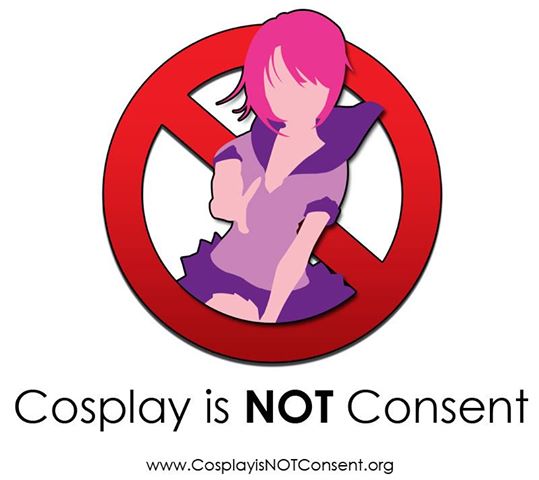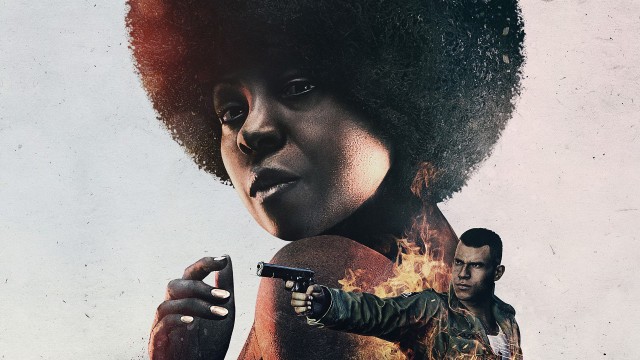So this semester one of the things that I have been doing (in my ample free time) is working on a diversity grant proposal to fund a tech/games/STEM based summer program for young girls of color. As I have been thinking through the minutiae of the project I have been forced to think about the best ways to describe to others both what I think diversity is and what we need as a society in order to promote diversity. And (probably) because of the nature of the genre that I am writing in I am thinking in bullet points, so let’s go from those to look at what it is that I think diversity needs.
- What it doesn’t need is segregation.
Diversity doesn’t require, need, or want segregation. Segregation doesn’t allow for dialogue between people of different races, genders, sexes, etc. Complete segregation can serve as an incubator for racism, sexism, transphobia, etc.
- What it does need is incubation.
While this may seem to be counter to what I just said in the point above, diversity does need incubation. Incubation of individuals. We need to provide marginalized and oppressed people with a safe space in which to explore, discuss, and build their identities. We need this space so that they can grow unfettered by the opinions of those whose goal it has been to operate as the oppressor (intentionally or not). For the purposes of the project that I am working on, bringing girls of color together to work and learn can give them the knowledge and the strength to work in a traditionally homogeneous environment that is known for being hostile toward women (and people of color in general).
- What it needs is for folks to understand
We need for people around us to understand. Understand when we need to be alone. Understand when to talk and when to listen. Know when to say I understand what you are saying and why change is imperative without trying to compare problems. Know when to let go of the white guilt and stop trying to excuse or justify privilege and just know that it exists and that they benefit from it instead trying to ignore or deny it.
I have been sitting and pouring over these grant documents for the last couple of weeks and trying to get them to make sense to committee of folks who are probably going to be less receptive to it than I would like to think they would naturally be. And through this process I see that what we are asking for is not unreasonable. I see that what we are asking for can make the experiences that women are having in and around the tech and games community now less violent (or in a utopian society, non-existent). If we can build a community of women and people of color in STEM then we will hopefully see a change in those industries and the media that they produce. These changes will hopefully produce a change in the people in the consumer communities around them. So in some odd way this is another way that I see the work that we do here at NYMG and in the real world communities around us seeping into (more like permeating) the work that I do in my more traditional academic life as well. Odd and convoluted as it sounds (kinda like a chicken and an egg), this is what we are working toward, (re)building industries and communities with more diverse foundations so that they don’t continue to perpetuate and incubate the prejudice and hatred that we currently see at play within them.





7 thoughts on “What Diversity Needs: On Video Games and STEM Education”
Yeah this comes off as segregation anyway you paint it. And being that you’re asking for a grant, that is tax payer money from people who won’t benefit from this, the difficulty is warranted.
You can’t at once demand a “safe space” free of different opinions and then tell people they should understand and accept that. You have to know why that is a bad idea on principle.
I personally don’t think female PoC need such coddling to begin with.
1. Not all grants are government grants so it’s not all tax payer money. This isn’t a government grant.
2. The terms of the grant are that it be for minorities. I am making the argument that we can focus on POC without segregating them and saying that it can only be them.
3. I can (and will) demand a safe space for young people to get to understand who they are as individuals. This is not a project that keeps these students away from differing opinions, it’s a short term project that focuses on them and the issues that they may face.
4. What you call coddling I call nurturing and as a parent, teacher, and researcher I can see where and why nurturing is necessary. You don’t have to agree. That just means it’s not for you.
1: I concede the point about the grants. Fair enough.
2: The problem with this point is you saying you’re focusing on PoC by making a program targeting them specifically, is still segregation by definition. What is the functional difference between ‘This is for PoC girls’ and ‘No white boys allowed’?
3: On this point there’s still a lack of distinction between Safe Spaces and Segregated Spaces (more specifically segregation of ideals now).
“We need this space so that they can grow unfettered by the opinions of those whose goal it has been to operate as the oppressor (intentionally or not).”
You’re even counting opinions as oppressive whether intentional or not. The folly of being able to define somebody’s intention is the removal of context. This way; any differing opinions concerning this safe space can be decided to be oppressive and therefor disallowed. My thoughts would be disallowed. And I’m certain I won’t get to define your thoughts as oppressive. So who gets to make the final definition? You?
4: ‘Incubating’ young minds in a safe space free of alternate opinions will not prepare them to be healthy, free thinking individuals outside of this safe space. How would they not come to expect their growth to be supported by protection against different opinions? How can they develop into strong adults?
I’m not making an argument against nurturing a child and their interests. I’m making an argument that trying to put safe rails on the catwalk of life will lead to more unprepared individuals than otherwise. And setting all that side – it is simply a bad idea to condition children to perceive alternate opinions, regardless of context, as offensive/oppressive. It’s an unsustainable concept for a society. What happens when they disagree with each other as young adults under this ideal? Who oppresses who in those instances? I’m a person of color. Am I oppressing you?
I have one point that is apparently not clear to you in what I am saying that addresses all of your points. The terms of the grant (not my application) specify that the programs be for minorities. I am making the argument that while I want the program focus on girls of color that it might not be limited only to girls of color because I see the value of diversity within programs that focus on diversity (while I also see the value of girl of color only programs as well). And clearly we see incubation as serving two different purposes. You can be exposed to other ideas and opinions without being a victim of them and giving them a safe space to talk about and through them is my goal. This is something that is more easily done by girls from marginalized groups when they feel less threatened by the folks around them.
And while I do think that you are being a bit of an ass in the framing of your questions I don’t think that you are oppressing me because as you would wield more power and privilege in some circumstances I fully recognize that I benefit from other forms of privilege (and thus power) myself.
“I am making the argument that while I want the program focus on girls of color that it might not be limited only to girls of color because I see the value of diversity within programs that focus on diversity.”
So on the actual program, we seem to agree. That’s fine and dandy.
“You can be exposed to other ideas and opinions without being a victim of them…”
What does this mean, how do you victimize people with opinions?
“This is something that is more easily done by girls from marginalized groups when they feel less threatened by the folks around them.”
I don’t know why you consider girls to be these fragile things but if your approach to nurturing was empowerment – you wouldn’t even need to worry about girls being terrified of opinions. Building spaces for people who feel threatened by opinions is extremely counter-productive to their growth.
“And while I do think that you are being a bit of an ass in the framing of your questions…”
I’m gonna let this instance of cyber-violence slide.
“…I don’t think that you are oppressing me because as you would wield more power and privilege in some circumstances I fully recognize that I benefit from other forms of privilege (and thus power) myself.”
I always considered ‘Checking Your Privilege’ to be a non-point term. I wouldn’t want you to ‘back off’ or censor yourself even if you think the context grants you more power than I. Conversely I’m not gonna let somebody define my role in discourse and determine whether I have say or not. It’s a zero-sum game since somebody will always have it worse than you and it really shouldn’t determine who gets free reign in discourse.
I’m saddened that you believe there are certain circumstances where you input is invalidated because of forces outside of your control. T’was up to me, anybody can say anything anywhere and be able to defend their viewpoints. It’s a freedom I offer unto you as much as myself.
As a woman of color who is also an academic working with technology my input is often invalidated for reasons outside of my control (as are the cases with numerous of other women) and the fact that you don’t/can’t/refuse to understand or acknowledge that means that you will never understand what it is that I have to say on this subject. And while we all have our utopian views of what the would should and could be like, the freedom that you offer is not yours to offer.
“As a woman of color who is also an academic working with technology my input is often invalidated for reasons outside of my control (as are the cases with numerous of other women)…”
If anybody dismisses your expertise and experience then their validation isn’t worth considering. You can’t change those people. You can however put them on blast via merit and accomplishment. In fact, a lot of your points boil down to feeling bad about somebody else’s opinion and that’s so alien where I’m from. Why can’t you at once hear a different opinion without flash-judging, condemning it as dangerous, or internalizing the implication of said opinion?
For somebody as well balanced and accomplished as you this is baffling.